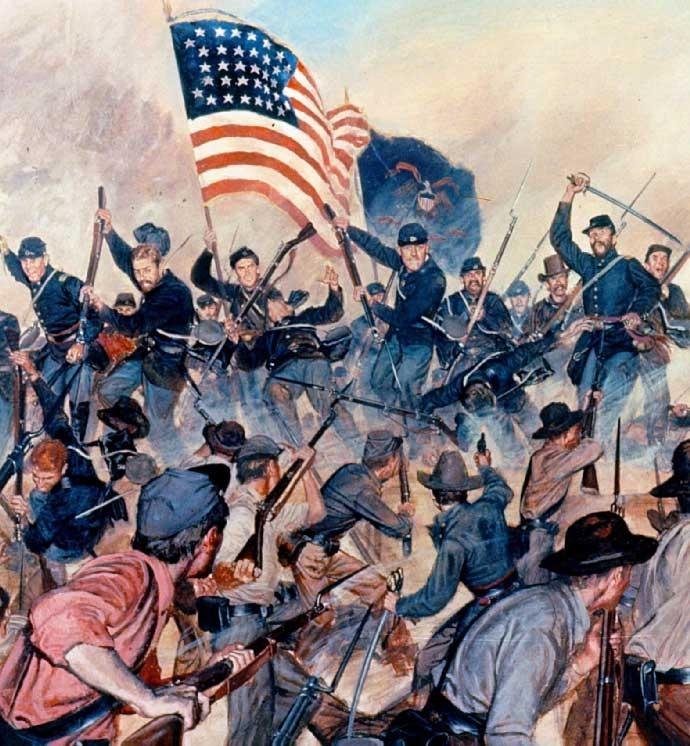American Civil War
The American Civil War, fought from 1861 to 1865, was a defining moment in American history. It was a deeply divisive and bloody conflict between the Northern states, known as the Union, and the Southern states, known as the Confederacy.
The primary cause of the American Civil War was the issue of slavery. The Northern states, with a more industrialized economy, opposed slavery and sought to abolish it, while the Southern states, whose economy heavily relied on plantation agriculture, defended the institution of slavery as essential to their way of life.
Tensions between the North and the South escalated, culminating in the secession of 11 Southern states from the Union, which formed the Confederate States of America, led by President Jefferson Davis.
In April 1861, Fort Sumter in South Carolina witnessed the first shots of the Civil War, sparking a brutal and protracted conflict that would claim the lives of over 600,000 soldiers and profoundly impact the nation.

The war featured notable battles like Gettysburg, Antietam, and General Sherman’s March to the Sea. Notable figures, including Union General Ulysses S. Grant and Confederate General Robert E. Lee, marked the leadership during this period.
The Civil War also had significant social and political ramifications. In 1863, President Abraham Lincoln issued the Emancipation Proclamation, declaring freedom for all enslaved people in Confederate territory.
This transformed the war into a struggle for freedom also equality, paving the way for the eventual passage of the Thirteenth Amendment, abolishing slavery throughout the United States.
The war also led to significant changes in the structure of the federal government. The federal government’s strengthened power challenged states’ rights, solidifying the Union as a centralized also sovereign entity.
The American Civil War concluded with the surrender of the Confederate forces in April 1865. President Lincoln’s assassination just days after the war’s end further deepened the nation’s wounds.
Post-Civil War, Reconstruction aimed to rebuild the South also integrate newly freed African Americans into American society.
However, this period was also marked by racial violence, discrimination, and the emergence of segregationist policies.
The legacy of the American Civil War continues to shape the United States to this day. A pivotal chapter in the nation’s history. It serves as a reminder of the consequences of division and the ongoing struggle for civil rights and social justice.
The war’s impact on American society, politics, and identity is a testament to the enduring significance of this monumental conflict. 온라인카지노사이트



